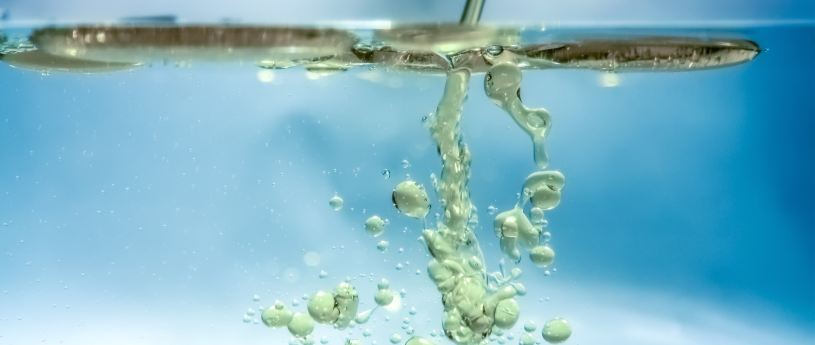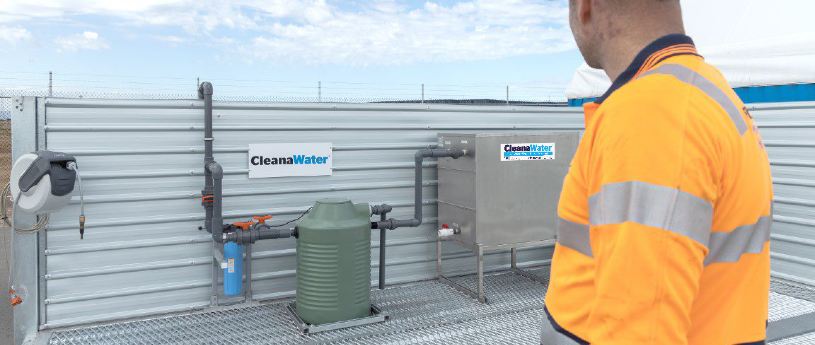Effective methods for the oil separation process
In today's industrial landscape, effectively separating liquids, oil, and water holds significant weight. Industries such as manufacturing, automotive, transport, food processing and many others rely on precise separation methods to maintain operational efficiency and safeguard the environment.
In this article, we will explore the world of oil-water separation. We aim to shed light on various methods and techniques that facilitate the separation of these two immiscible liquids.
Why does separating oil and water matter?
The challenges of mixing oil and water are more than a hassle. It's a big concern for industries that rely heavily on these liquids, like manufacturing, oil exploration, and food businesses.
When oil and water combine, they create mixtures that can harm equipment, make operations less efficient, and even lead to environmental disasters like oil spills. Without proper separation, businesses spend more on maintenance and risk breaking regulations and harming their reputation.
As we learn about Cleanawater's expertise and the methods they use for separation, it becomes clear how important oil-water separation is. Understanding its significance helps industries run smoothly and show a commitment to protecting the environment.
The basic principles of oil-water separation
Effective oil-water separation depends on understanding the unique qualities of oil and water. They have very different densities, thicknesses, and tendencies to stick together, which are the basis for the techniques used to separate them. The goal is to use these differences to create processes that can efficiently remove oil from water, separating the two.
When industries understand the science behind oil-water separation, they can choose the right techniques for their specific requirements. In the following sections, we'll explore the effective methods for achieving this separation.

How can you separate oil and water mixtures?
Gravity Separation
Gravity is key in separating oil-water mixtures because they have different weights. Oil is lighter and tends to float on water, making it possible to skim or collect it from the surface. Cleanawater's oil-water separators are designed with this principle in mind, making them effective at removing oil from water. This not only protects equipment but also prevents environmental damage.
Coalescence and Filtration
Coalescence involves combining small oil droplets into larger ones, making removal easier. Coalescence-filtration systems deliver impressive results in partnership with filtration, where specially designed media capture these aggregated droplets.
Flotation
The flotation method exploits the buoyancy of oil droplets by introducing tiny air bubbles. As these bubbles attach to oil droplets, they rise to the surface, forming a concentrated oil layer that can be skimmed off, effectively creating two separate and distinct layers.
Advanced techniques for oil-water separation
Centrifugation
Centrifugation is a technique that relies on physics laws. It involves spinning a mixture at high speeds and separating compounds. This action makes the denser component, which is the oil in this case, move towards the outer edges, while the lighter water stays towards the centre - creating two separate layers. Using centrifugal force, industries can achieve effective oil-water separation, ensuring both substances are pure and minimising environmental harm.
Membrane Filtration
A cutting-edge approach to oil-water separation involves the use of semi-permeable membranes. These membranes allow water droplets to pass through while trapping oil molecules, resulting in a clean and clarified water stream. This technique holds particular promise when dealing with complex oil-phase emulsions. From removing trace oil contaminants to large-scale industrial processes, membrane filtration is a great solution for ensuring clean water output.
Industry-specific applications
Various industries have unique needs for oil-water separation because their processes differ. In the transport sector, separating oil from water molecules is essential for efficient coolant systems and reducing wear on engine parts.
Protecting machinery, extending equipment life, and following environmental rules are crucial in manufacturing. Effective crude oil separation in mining helps minimise water contamination during extraction.

Best practices for oil-water separation
Achieving the best oil-water separation means following some important guidelines. It's crucial to maintain separation equipment regularly, replace filter materials on time, and closely monitor how well the separation is working.
By doing these things, industries can avoid the buildup of oil contaminants and make sure their equipment lasts longer. And, importantly, following environmental rules isn't just a legal duty—it's a moral responsibility to safeguard our natural resources.
Cleanawater's expertise in oil-water separation
A comprehensive range of solutions marks Cleanawater's legacy in oil-water separation. From state-of-the-art oil water separators to innovative wash bays and rainwater harvesting systems, we cater to the diverse needs of industries.
Why is oil-water separation important for wastewater treatment?
Oil-water separation is a critical aspect of wastewater treatment, particularly in industries where contaminants like oil and grease can harm the environment. Cleanawater's wash bays come equipped with advanced oil-water separators that efficiently remove these pollutants before the wastewater is discharged.
This process helps prevent environmental contamination, ensures compliance with stringent environmental regulations, and protects aquatic ecosystems from hazardous waste. By utilising Cleanawater's oil-water separators, businesses can maintain responsible water management practices and avoid costly fines associated with improper waste disposal.
Contact us if you need an oil-water separator system
Ready to take your oil-water separation processes to the next level? Whether you seek expert consultation, innovative solutions, or more information, Cleanawater is here to help. Contact us today to discover how our tailored solutions can elevate your operations, minimise environmental impact, and ensure a cleaner future.
Must Read
What to Expect During a Modular Wash Bay Installation
CleanaWater, we make the process of installing a modular wash bay on your site as smooth and straightforward as possible. ...
Read moreThe CleanaWater Team Driving Water Treatment and Sustainability
CleanaWater is powered by a dedicated team of professionals who bring expertise and passion to every project. ...
Read more